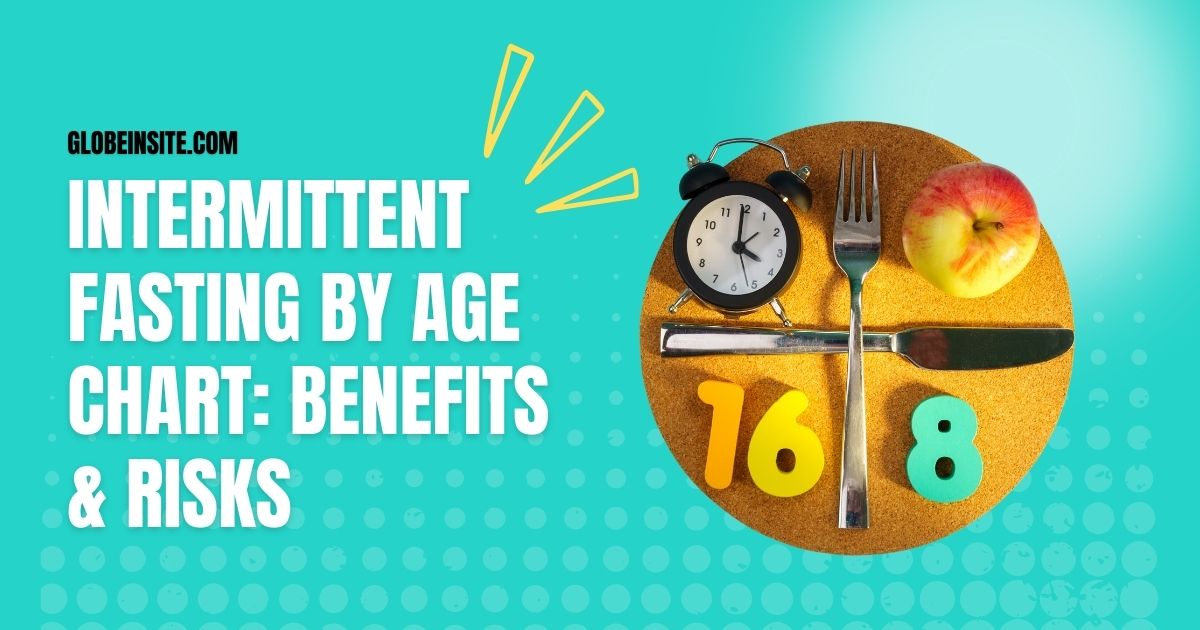Discover the benefits and risks of intermittent fasting based on your age, with tailored advice for teens, adults, and seniors.
Introduction
Intermittent fasting (IF) has become a hot topic in recent years, with claims of weight loss, better metabolic health, and even longevity. But did you know that your age can significantly affect how your body responds to fasting? From hormonal changes to shifts in metabolism, your fasting strategy should adapt as you age. Let’s explore intermittent fasting through the lens of different age groups, breaking down the benefits and risks for each stage of life.
What is Intermittent Fasting?
Intermittent fasting isn’t a diet but rather a pattern of eating that alternates between periods of eating and fasting. The most famous strategies incorporate the 16/8 strategy, where you fast for 16 hours and eat during a 8-hour window, and the 5:2 technique, where you consume a normal diet for 5 days and significantly reduce calories for the other 2 days.
Different fasting methods can work for different people, but it’s important to find a plan that aligns with your body’s needs, especially as you age.

How Age Affects Your Body’s Response to Fasting
As you age, your body changes, and so does the way it processes fasting. Metabolism tends to slow down as we grow older, and our hormonal balance shifts, influencing how efficiently we burn fat or regulate insulin. A fasting regimen that works for a 20-year-old may not yield the same results for someone in their 60s. Energy levels, muscle recovery, and even mental sharpness can also be affected by fasting, depending on your age.
Intermittent Fasting for Teens (Ages 13-19)
Fasting during adolescence is a bit tricky. Teens undergo rapid physical and hormonal changes, and their bodies need plenty of energy and nutrients for growth. While intermittent fasting is generally not recommended for teenagers, some forms of light fasting (like a 12/12 schedule) can be beneficial when done under guidance.
For teens, the main risks include nutrient deficiencies, low energy, and stunted growth if the fasting pattern isn’t balanced with proper nutrition. Parents and teens should consult a healthcare provider before adopting any fasting regimen.

Intermittent Fasting for Adults (Ages 20-40)
In your 20s and 30s, your metabolism is usually still firing on all cylinders, making this an ideal time to experiment with different fasting methods. The 16/8 or 14/10 fasting schedule often works well for young adults, promoting fat loss, muscle growth, and improved focus.
The benefits of fasting at this age include weight management, increased mental clarity, and better insulin sensitivity. However, the risks lie in overdoing it—fasting for too long without proper nourishment can lead to nutrient deficiencies or burnout.
Intermittent Fasting for Middle-Aged Adults (Ages 40-60)
Once you hit your 40s, your metabolism may begin to slow down, and you might notice weight is a bit harder to lose. Hormonal fluctuations, especially in women approaching menopause, can also complicate fasting. In this age group, the 5:2 method or a gentler fasting approach like 12/12 might be more suitable.
Fasting can help manage weight, improve blood sugar levels, and support mental clarity. But it’s essential to stay mindful of muscle mass loss, which can be accelerated if you’re not eating enough protein or engaging in resistance training.
Intermittent Fasting for Seniors (Ages 60 and Above)
Fasting in older age requires a more cautious approach. Seniors are more prone to energy imbalances, frailty, and reduced muscle mass. However, intermittent fasting can still offer benefits, such as enhanced cognitive function, improved heart health, and potential longevity.
For older adults, a shorter fasting window (like 10/14) may be best. The key is to avoid over-restricting calories and ensure that meals are nutrient-dense to maintain energy levels and muscle mass.

Health Benefits of Intermittent Fasting Across All Ages
Across all age groups, intermittent fasting can help with weight loss, improved insulin sensitivity, and mental clarity. Fasting promotes cellular repair, which may enhance longevity and reduce inflammation.
Common Risks and Side Effects of Intermittent Fasting
Despite its benefits, intermittent fasting carries risks. Nutrient deficiencies are common if fasting periods are too long or meals are not well-balanced. Muscle loss and fatigue can occur, especially in middle-aged and older adults. Hormonal imbalances are another potential concern, particularly in women.
Precautions to Take While Fasting at Any Age
No matter your age, staying hydrated and consuming balanced, nutrient-rich meals is crucial. Always listen to your body—if you’re feeling overly fatigued or experiencing headaches, it might be time to shorten your fasting window or take a break. Consulting a healthcare provider before starting any fasting plan is always a wise move.
Who Should Avoid Intermittent Fasting?
Intermittent fasting isn’t for everyone. People with certain medical conditions (like diabetes or eating disorders), pregnant and breastfeeding women, and underweight individuals should avoid fasting without consulting a healthcare professional.
Tips for Safe Intermittent Fasting for Every Age
Listen to Your Body: Start slow and pay attention to how you feel during fasting.
Gradually Increase Fasting Windows: Don’t jump into long fasting periods immediately.
Incorporate Nutrient-Dense Meals: Ensure you get plenty of vitamins, minerals, and protein during eating windows.

The Role of Exercise in Intermittent Fasting
Exercising during fasting can yield great results, but it’s essential to tailor your routine to your age. Younger adults may benefit from high-intensity workouts, while middle-aged and older adults should focus on low-impact exercises like walking, yoga, or light strength training during fasting periods.
Conclusion
Intermittent fasting can offer many benefits, but it’s crucial to adjust your fasting strategy based on your age and personal health needs. While it helps with weight loss, insulin sensitivity, and mental clarity, the risks vary by age group. Whether you’re a teenager, an adult, or a senior, listening to your body and ensuring you’re fueling it with proper nutrition is key to successful fasting.
FAQs
Is intermittent fasting safe for all ages?
It can be, but it’s important to tailor your fasting regimen to your age and consult a healthcare provider before starting.
Can intermittent fasting improve mental clarity in older adults?
Yes, fasting has been shown to enhance cognitive function, particularly in seniors.
How can I avoid nutrient deficiencies while fasting?
Focus on consuming nutrient-dense meals during your eating windows, rich in vitamins, minerals, and protein.
What is the best fasting method for someone in their 50s?
A 14/10 or 5:2 schedule is often ideal, balancing fasting benefits while minimizing risks like muscle loss.
Can fasting slow down aging?
Fasting promotes cellular repair and longevity, which may contribute to slowing the aging process.
Read More: Global Economy Faces Uncertain Future

